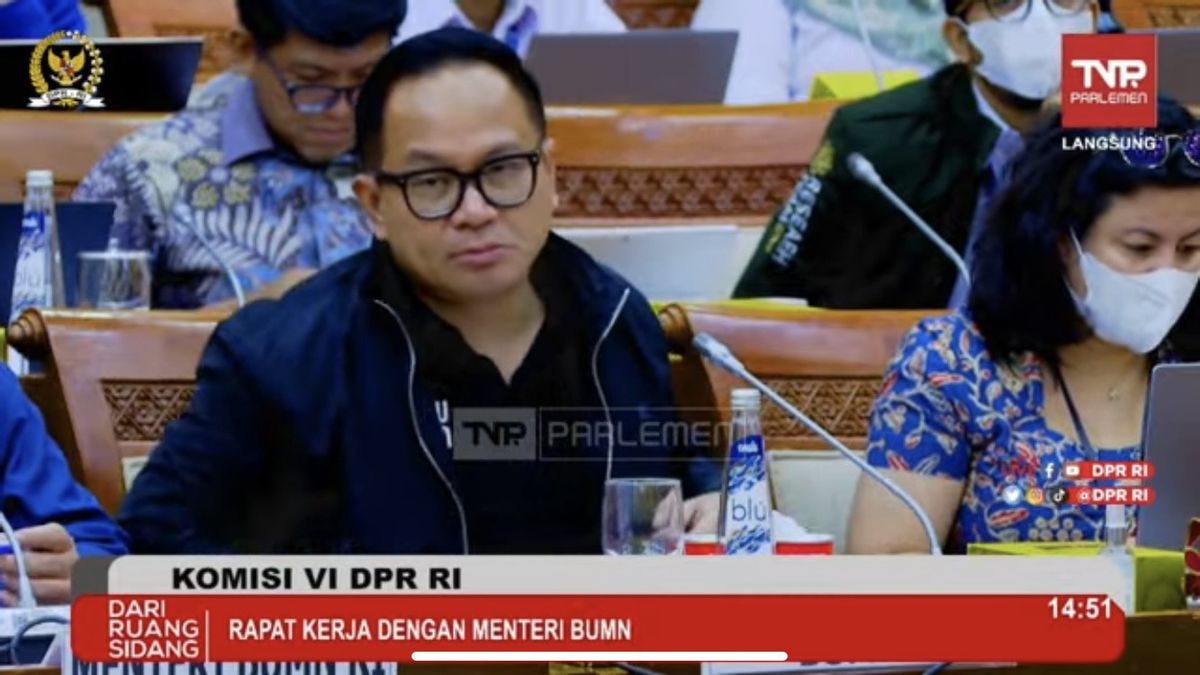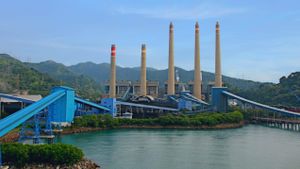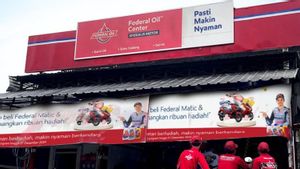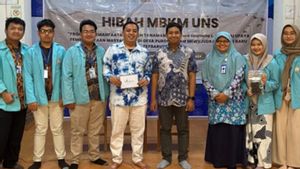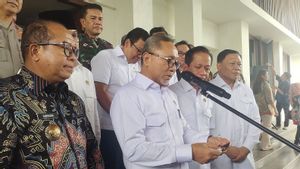JAKARTA - Indonesia-China has agreed on a cost overrun or swelling costs for the Jakarta-Bandung High Speed Rail (KCJB) project, which is 1.2 billion US dollars or equivalent to Rp. 18.2 trillion (assuming an exchange rate of Rp. 15,207).
This agreement was obtained after the Indonesian government visited Beijing, China, some time ago.
"Indeed, we agree on the cost overrun of 1.2 billion dollars. This is what we are tidying up, some of their items are conducting studies on taxes, clearing frequencies and so on, but we have agreed on the figures," said Deputy Minister of SOEs II Kartika Wirjoatmodjo in a meeting with Commission VI of the DPR, Monday, February 13.
However, Tiko, Kartika's nickname, said that this figure must be brought to the Financial and Development Supervisory Agency (BPKP) to be adjusted.
And we still have to go to BPKP to adjust the numbers and the committee. We will apply it in the next two months to knock the numbers. And we will process the addition to CDB (China Development Bank)," he said.
Tiko emphasized that the operational plan for the Jakarta-Bandung High Speed Train (KCJB) was not disturbed by the problem of cost overruns or project cost overruns.
"This has been agreed, the progress of operations in the field is not disrupted, the track installation is carried out, the operation continues. So the project should not interfere, we can reduce the financing within the next month," he explained.
Previously, it was reported that the Indonesian and Chinese governments had not set a cost overrun or swelling costs for the Jakarta-Bandung High Speed Rail (KCJB) project.
This is because there are differences in the amount of these two countries.
Meanwhile, based on temporary data, the costs of the Jakarta-Bandung high-speed train swelled to US$1.176 billion or equivalent to Rp. 16.8 trillion.
The increase in the budget for the high-speed train was debated by PT Pilar Sinergi BUMN Indonesia (PSBI) and the Chinese consortium Railway International Co. Ltd. The Chinese consortium had rejected the calculation of the cost overrun offered by PSBI.
The rejection was because the Chinese Consortium did not recognize the fees from PT PLN (Persero), PT Telkom Indonesia Tbk, to the tax issue.
"There will definitely be an agreement. Just wait, it's called negotiations. It doesn't affect the timeline because yesterday's commitment was at the G20 between Xi Jinping and Pak Jokowi," said the Special Staff of the Minister of SOEs Arya Sinulingga when met at the Ministry of SOEs, Friday, February 3.
Arya explained that the cause of the swelling of the costs of the Jakarta-Bandung high-speed rail project.
He said, there are a number of components such as land prices to frequency problems that China does not count.
The English, Chinese, Japanese, Arabic, and French versions are automatically generated by the AI. So there may still be inaccuracies in translating, please always see Indonesian as our main language. (system supported by DigitalSiber.id)
